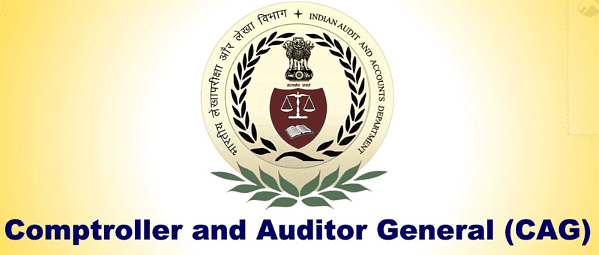UPSC Exam > UPSC Notes > Public Administration Optional for UPSC (Notes) > Financial Accountability, Accounts and Audit
Financial Accountability, Accounts and Audit | Public Administration Optional for UPSC (Notes) PDF Download
| Table of contents |

|
| Introduction |

|
| Understanding Financial Accountability |

|
| Classification of Public Accounts |

|
| Accounting Systems in India |

|
| The Audit Process |

|
Introduction
Financial accountability plays a pivotal role in governmental systems, ensuring transparency and control over funds. This article delves into the world of financial accountability, highlighting the significance of accounting, classification of public accounts, the role of the Comptroller and Auditor General (CAG), accounting systems in India, and the process of auditing.

Understanding Financial Accountability
- Definition and Purpose: Financial accountability, also known as accounting, involves recording and maintaining comprehensive data of all financial transactions undertaken by the government. It serves as a mechanism for the legislature and executive to exercise financial control over granted funds, providing a clear overview of the government's financial health and assessing the achievement of goals.
Classification of Public Accounts
- Control Accounts: Control Accounts encompass data regarding government expenditure, revenue, and financial transactions. These accounts provide a comprehensive view of the financial activities of the government.
- Proprietary Accounts: Proprietary Accounts are internal control mechanisms that aid departments and ministries in decision-making processes. They are not subject to external audits but contribute to informed decision-making within the government.
- Supplementary Detailed Accounts: Supplementary Detailed Accounts are prepared to provide the general public with insights into government functioning and departmental spending. These accounts are formulated in a user-friendly manner to enhance public understanding of government financial activities.
- The Role of the Comptroller and Auditor General (CAG): The CAG's office maintains and audits the accounts of both the Central and State governments. Each state has an Accountant General responsible for maintaining the state's records, which are subsequently audited by the CAG.
- Separate Railway and Defense Accounts: Railway accounts are maintained independently under the Financial Commissioner of Railways, while defense accounts are managed by the Finance Ministry through the Financial Adviser (Defense) and the Military Accountant-General.
Accounting Systems in India
- Initial Entry: The initial entry step occurs in the administrative office where the actual spending takes place. It involves real-time recording of financial transactions.
- Monthly Compilation in the Office of the Accountant General (AG): Each month, the administrative office forwards the details of financial transactions recorded through the initial entry step to the AG office. The AG office classifies and organizes this information under specific account heads such as capital expenditure, revenue expenditure, and revenue receipts.
- Annual Compilation in the Office of AG: The AG office performs an annual compilation of the monthly reports received from administrative offices. These reports are further classified and maintained.
- Final Compilation in the Office of the CAG: The CAG's office concludes the accounting process through a final compilation, ensuring accuracy and completeness of the financial data.
The Audit Process
- Audit Definition and Function: Audit, a subject under the Union government, refers to the systematic examination of accounts to verify the validity of financial transactions carried out by administrative departments. The objective is to determine the correctness of processes specified in the approved budget.
- The Role of the CAG: The CAG, an autonomous constitutional body appointed by the President, conducts the audit function. It operates under the Government of India Act 1935 and presents audit reports to the President and Governors, who, in turn, present them before the Parliament and State legislatures.
- Parliamentary Accounts Committee: Audit reports undergo further scrutiny by the Parliamentary Accounts Committee, which comprises representatives from both houses of the legislature. This committee reviews the findings and recommendations before presenting them for debate and necessary action.
Conclusion
Financial accountability forms the bedrock of transparent governance, enabling effective control and utilization of funds. Through robust accounting practices, classification of accounts, the role of the CAG, and comprehensive auditing processes, governments can ensure responsible financial management. By upholding accountability, governments foster trust, enhance decision-making, and promote public welfare.
The document Financial Accountability, Accounts and Audit | Public Administration Optional for UPSC (Notes) is a part of the UPSC Course Public Administration Optional for UPSC (Notes).
All you need of UPSC at this link: UPSC
|
58 videos|242 docs
|
Related Searches















